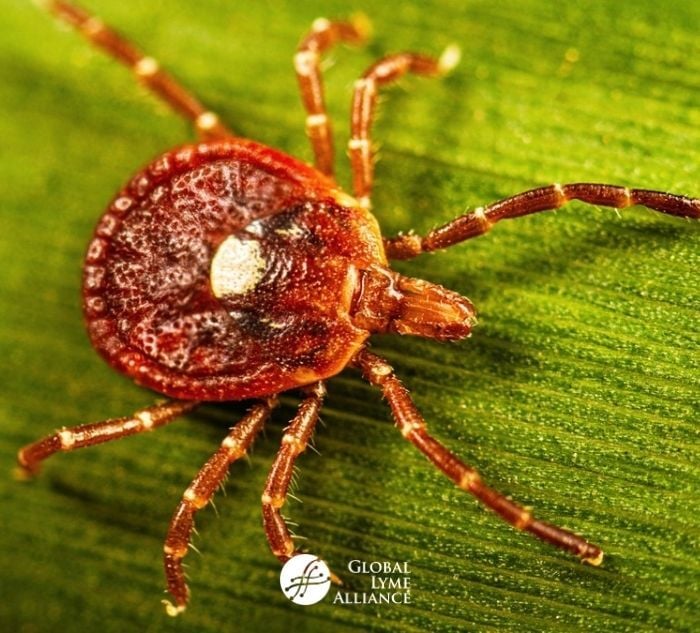.jpg)
Can You Drink Alcohol with Lyme Disease?
If you are a Lyme disease patient, you may wonder if you’re able to drink alcohol. Can you have a glass of wine with dinner? Do Lyme disease and alcohol mix? The answer is that while you are infected with this tick-borne disease, it is recommended not to have alcohol—or any simple sugars, for that matter.
Whether you have recently been bitten by a black-legged tick and have early Lyme disease, or you have persistent symptoms from chronic Lyme, your immune system is working hard to fight Borrelia burgdorferi (also known as B burgdorferi), the bacterium that causes the infection. With the risks of your Lyme disease, it may not be worth it to make your body go through more.
How Can Alcohol Affect Lyme Disease?
There are several reasons why it is recommended not to drink alcohol while you have Lyme disease. The first is because of the way Lyme impacts your immune system. In his Lyme Disease Q & A video series “Can I Consume Simple Sugar or Alcohol if I Have Lyme Disease?” Daniel Cameron, MD says, “The reason I advise against simple sugars and alcohol has to do with how the immune system is affected by Lyme disease. It seems like the immune system is overactive, the cytokines are active. As soon as one has sugar and alcohol, it seems like it drives the immune system to be too active, too over the top.” What happens when your immune system overreacts in this way? “People will find that their symptoms flare up,” Dr. Cameron cautions. “The symptoms will be more intense. They might not sleep very well, and they might even crave more sugars, and they’ll get in this endless cycle of chronic recurring symptoms.”
In his book Why Can’t I Get Better? Solving the Mystery of Lyme & Chronic Disease, Richard I. Horowitz, MD corroborates what Dr. Cameron says, writing, “It is very common that patients with Lyme disease report intolerance to alcohol.” He then breaks down the specific reactions he sees to different types of alcohol. “Red wine can exacerbate headaches as a migraine trigger, and some patients are sensitive to the sulfites in it. Beer and wine can also trigger hypoglycemic events in susceptible individuals.”[i]
If symptom exacerbation isn’t enough to deter you from alcohol, Lyme disease, also sometimes referred to as Lyme borreliosis, can directly affect your liver. There is a risk that drinking with Lyme disease can damage your liver even further. As Dr. Horowitz explains in his book, the liver plays an important role in getting toxic substances out of your body. “The liver helps transform chemicals, drugs, hormones, and toxic compounds into nontoxic substances[ii],” he writes. Lyme disease already puts your liver in a weakened state, and with alcohol, you are introducing a liquid that your body sees as a poison. Rather than filtering out toxins from Lyme disease, your body, specifically your liver, will prioritize getting rid of the alcohol.
Finally, drinking alcohol can be dangerous if you are in the midst of treatment for Lyme disease. Many Lyme disease cases are treated with antibiotics, which can cause a candida (yeast) infection. You can help stave off such an infection by taking probiotics, and also by avoiding yeasty and fermented foods, and sugar—like alcohol. If you are taking the antibiotic Flagyl, that can cause nausea and vomiting if mixed with alcohol.
Lyme disease is also sometimes treated with off-label use of Disulfiram, a drug that is used to treat alcoholism by making you extremely sick if you drink even one drop of alcohol. If you are taking Disulfiram to treat Lyme disease, it is especially important that you avoid even touching, let alone drinking, alcohol. (Disulfiram can also impact mental health, so your health care provider should monitor you closely if you are taking it.)
How Does Lyme Disease Affect Your Lifestyle?
Lyme is a serious infectious disease that can affect every system of the body. In later-stage cases, the bacterium can cross the blood-brain barrier into the nervous system, causing symptoms like peripheral neuropathy, brain fog, and word iteration. These symptoms, and others like fatigue and headaches, can be debilitating.
To minimize symptoms and the impact they have on your life, it’s important not just to treat the Lyme disease infection, but to take care of your whole body. In addition to not drinking alcohol, making overall positive lifestyle changes including diet, exercise (as you are able), and general self-care can help your body heal. If your body sees alcohol as a poison, consider what else might be harmful—and helpful—to your overall well-being. What foods will help nourish your body? What adjunct therapies might complement your treatment? How can you incorporate joy and relaxation into your life even when you’re not feeling well? Making adjustments isn’t easy and may require some reframed thinking. Avoiding alcohol might seem like a limitation at first but may in fact make a very positive difference in living with Lyme.
The Lyme Diet
Lyme is an inflammatory disease. The infection can cause inflammation throughout your body, which can manifest in many different ways, including systemic hives. Certain foods, including alcohol and sugar, can trigger this inflammation, making you feel worse. Foods that are high in sugar can promote the growth of bacteria. Instead, you want to help your body fight the Lyme bacteria and its subsequent inflammation. As noted in GLA’s “The Lyme Disease Diet” blog, Nicola McFadzean (Ducharme), ND, author of The Lyme Diet, lists gluten, sugar, and dairy as the biggest problems for Lyme patients. She suggests food allergy testing, dietary supplements and organic foods.
In addition to avoiding alcohol, some other foods you might want to avoid if you have Lyme disease include:
-
Gluten)
-
Processed foods
-
Refined sugar and flours
-
Caffeine
-
Dairy
-
Chocolate, aged cheese, and broccoli for headache-prone patients
Good dietary choices to consider include:
-
Whole-foods, low-glycemic, vegan diet
-
Mediterranean-style diet
-
Fresh fruits and vegetables high in antioxidants (dark leafy greens, berries, avocados)
-
Lean proteins (mostly wild)
-
Oily fish (salmon, herring, sardines)
-
Fiber-rich whole grains (brown rice)
-
Healthy fats (extra virgin olive oil, eggs, flaxseed)
-
Warm foods (which can induce relaxation)
What works for one patient might not necessarily be right for another, so it’s important to work with your Lyme Literate Medical Doctor (LLMD) to figure out the best diet for you. Overall, you can think about nourishing rather than depriving yourself; eliminating what your body doesn’t need (like alcohol); staying well hydrated; and eating small, balanced meals throughout the day. Making dietary changes to help you fight Lyme disease is not about going on a diet, but about making positive lifestyle choices.
Lyme disease is a public health crisis with over 476,000 cases reported each year. The best way to prevent complications of Lyme disease is to avoid tick bites, which you can do by being Tick AWARE. If you do get a tick bite and get diagnosed with Lyme, though, taking care of your overall health, particularly eliminating alcohol
[i] Horowitz, Richard I., MD. Solving the Mystery of Lyme & Chronic Disease. New York: St. Martin’s Press, 2013 (52)
[ii] Horowitz, Richard I., MD. Solving the Mystery of Lyme & Chronic Disease. New York: St. Martin’s Press, 2013 (226).
The above material is provided for information purposes only. The material (a) is not nor should be considered, or used as a substitute for, medical advice, diagnosis, or treatment, nor (b) does it necessarily represent endorsement by or an official position of Global Lyme Alliance, Inc. or any of its directors, officers, advisors or volunteers. Advice on the testing, treatment or care of an individual patient should be obtained through consultation with a physician who has examined that patient or is familiar with that patient’s medical history.







